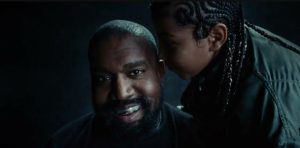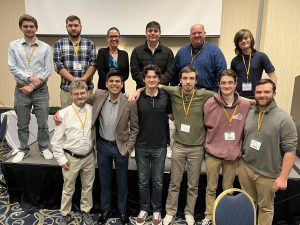Exploring Music History in the Age of #MeToo
March 25, 2019
Dr. Monica Hershberger, Professor of Musicology at the State University of New York, explored how in the modern day and age, the interpretations on plays and operas of the past have changed due to the movement
Hershberger opened the lecture by exploring the effect of the #MeToo movement on musical history.
Much of Hershberger’s lecture focused on the opera Susannah by Carlisle Floyd, which was in turn based on the story Susanna and the Elders.
The original story from the Book of Daniel centers around Susanna, who is spied on by two elders. When they attempt to blackmail her into having intercourse with them, she refuses and is nearly put to death. Daniel speaks up on her behalf and questions the two elders. When the details of their stories do not match up, they are sent to death for their lies.
The opera by Floyd also focuses on a girl named Susannah who has been blackmailed and falsely accused of being sexually promiscuous by the elders of her local church. After a series of events, a priest by the name of Blitch sexually assaults her, though the situation is left ambiguous as the play cuts to the morning after. After Blitch discovers that she was indeed a virgin, he begs for her forgiveness, but not before leaving after her brother threatens to kill him for the act.
A short analysis was conducted on some of the songs from the opera, such as “Ain’t it a pretty night?” and “Come on over, Little Bat.” Hershberger presented the question of whether or not the act between the two was consensual, as Susannah’s language during the scene has her explaining that she is tired and can no longer fight the accusations being pelted against her. Audience members who spoke came to the conclusion that the act was indeed rape since Susannah did not give consent and she was not mentally sound at the time.
While noting that the opera ends on an unsatisfying note, Hershberger noted that Floyd had written the play during the era of McCarthyism, where several people in positions of power were falsely accused of being communists by Joseph McCarthy. The situation at the time had acted as his inspiration for writing the play. “If you think about Susannah in relation to McCarthyism, then it makes sense,” Hershberger said.
After the lecture, Hershberger allowed several audience members to engage in a short question and answer session.“I think because we talk a lot about the issues, like taking advantage of women and a lot of the issues already appear in opera.” Hershberger said when asked about how she connected #MeToo to analyzing opera.
Hershberger considered analyzing plays and operas with the lens of the #MeToo movement important, stating, “It’s about considering how the values of the present can inform our understanding and performance of the music of the past.” When asked about what she wishes to impart onto her students, Hershberger stated: ”For me, it’s about enriching my students’ worldviews and equipping them with the tools to make our society more equitable.”





